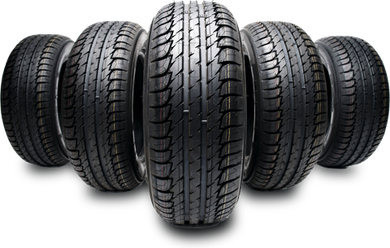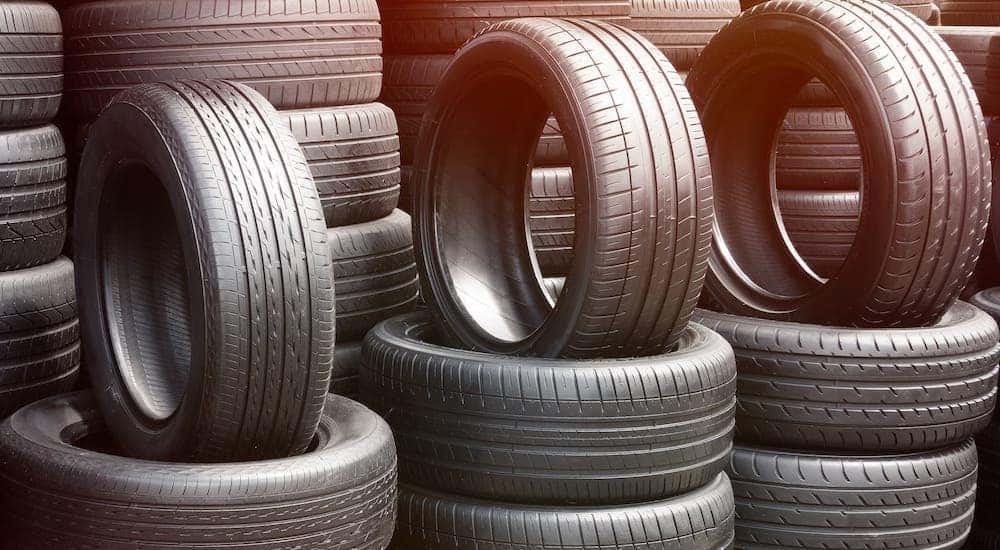Enjoy Big Cost Savings on Discount Tires Morris IL: Shop Currently for Offers
Enjoy Big Cost Savings on Discount Tires Morris IL: Shop Currently for Offers
Blog Article
Tire Solution: Comprehending Tire Pressure Monitoring Systems
Recognizing Tire Stress Tracking Solutions (TPMS) is a crucial facet of maintaining optimal lorry efficiency and safety and security on the road. With developments in vehicle technology, TPMS has actually come to be a conventional function in modern-day automobiles, offering real-time info on tire pressure degrees.

Value of TPMS
The value of Tire Pressure Monitoring Equipments (TPMS) depends on their capability to improve vehicle safety and security and performance via real-time tracking of tire pressure degrees. Keeping the proper tire stress is crucial for making sure optimal handling, stopping, and overall safety of an automobile. TPMS supplies vehicle drivers with prompt responses on any overinflated or underinflated tires, permitting timely adjustments to be made.
Parts of TPMS
Consisting of numerous important elements, a Tire Pressure Tracking System (TPMS) works as an advanced security function in contemporary cars. The primary parts of a TPMS consist of sensing units, a control module, and a warning indication. Sensors are typically located in the tire shutoff stem or affixed to the wheel setting up, where they gauge tire stress and transmit data to the control module. If it detects considerably low stress in any of the tires, the control module processes this info and activates a warning. The caution sign, often a symbol on the dashboard, notifies the driver to inspect the damaged tire or tires. Some advanced TPMS versions likewise present the real tire stress readings for every tire, offering vehicle drivers with real-time details to ensure optimum tire performance and security. By monitoring tire stress constantly, TPMS helps prevent mishaps, reduces tire wear, and enhances fuel performance, making it a critical element for car security and performance.
Sorts Of TPMS

On the other hand, indirect TPMS depends on the automobile's wheel rate sensing units to keep track of tire stress. This system identifies underinflation by contrasting the rotational speeds of the wheels. Indirect TPMS is much less costly than straight TPMS, as it utilizes existing sensing units within the car.
While straight TPMS supplies a lot more exact analyses, indirect TPMS is simpler in layout and generally requires much less upkeep. Both systems have their benefits and constraints, and the option in between them typically depends on variables such as cost, car make, and individual preference. Recognizing the differences in between these 2 kinds of TPMS can help lorry owners make informed choices concerning tire maintenance and security.
TPMS Upkeep Tips
Effective maintenance of TPMS is necessary for making sure optimum performance and safety and security of your vehicle. On a regular basis examining the TPMS sensors for any damage or rust is crucial. Guarantee that the sensors are free and tidy from debris that might disrupt their functioning. Furthermore, it is advisable to check the sensing unit batteries regularly and replace them as needed to guarantee precise analyses. Conduct routine checks on the tire pressure levels and contrast them with the TPMS analyses to guarantee they are consistent. Recalibrate the system complying with the maker's standards if there are any kind of inconsistencies. During tire rotation or substitute, make sure that the TPMS elements are handled very carefully to prevent any our website kind of potential damage. If the TPMS warning light illuminates on the dashboard, resolve the problem without delay by inspecting the tire stress and the total system for any type of faults. By sticking to these maintenance pointers, you can lengthen the life-span of your TPMS and improve the safety of your driving experience.
Benefits of Correct Tire Stress
Keeping correct tire stress, as highlighted in TPMS Upkeep Tips, is vital for enjoying the various benefits related to optimum tire stress levels. Among the primary advantages of maintaining the right tire stress is enhanced fuel performance. When tires are appropriately pumped up, there is less moving resistance, bring about much better gas economic situation. Additionally, proper tire stress guarantees also tire wear, expanding the life-span of the tires and advertising much safer driving conditions. With the ideal tire stress, cars likewise have much better straight from the source handling and grip, specifically in negative weather. This can improve general driving efficiency and safety and security for the chauffeur and travelers. Maintaining optimal tire stress can add to a smoother and more comfy ride by decreasing resonances and noise created by underinflated tires. In conclusion, the benefits of appropriate tire pressure go beyond just tire long life; they incorporate boosted fuel efficiency, boosted safety and security, better car performance, and total driving comfort.
Verdict
In conclusion, recognizing tire stress surveillance systems (TPMS) is essential for keeping optimal tire pressure and making certain vehicle security. By identifying the relevance of TPMS, recognizing with its parts, knowing the various kinds available, Discover More sticking to correct maintenance suggestions, and understanding the benefits of keeping appropriate tire pressure, chauffeurs can improve their driving experience and prolong the lifespan of their tires. Proper tire stress is essential to secure and effective lorry procedure.

Report this page